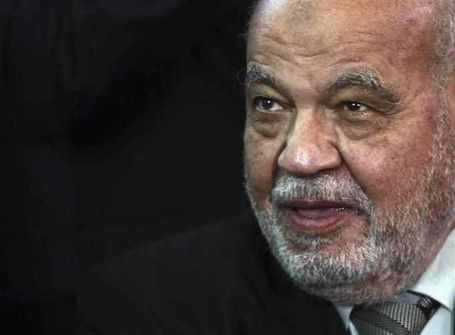The Egyptian Liberal Party presents platform based on Egyptian national heritages
CAIRO: After the rejection of Masr El-Om (Mother Egypt) Party, the founders are establishing a new party: the Liberal Egyptian Party (LEP).
Many of the party founders are the same as those who were behind Masr El-Om Party, which was not approved by authorities. The new party promotes Egyptian nationalism (as opposed to Arab nationalism), secularism and democracy.
The founders and most of the members of the Masr El-Om Party met and came up with the idea at Mohsen Lotfy El-Sayed’s weekly cultural salon at his house, where he taught hieroglyphics for anyone who wanted to learn for free. The founders regard him and his uncle Ahmed Pasha Lotfy El-Sayed as the godfathers of their ideology.
Parties in Egypt have to go through a lengthy, time-consuming process in order to get legal approval to establish a political party.
Masr El-Om worked to get an approval for many years before being rejected. The group first presented their papers to the Parties’ Affairs Committee on February 14, 2004. The committee then rejected the party papers in June 2004, a ruling which the party appealed in July of the same year. An advisory committee to the court issued a statement in support of the party being granted a legal license in April 2005.
The court holds approximately one session each month, the first session took place in October 2004, at which they postponed a ruling on the party. On June 3, 2006, they issued a final ruling that the party would not be granted a legal license. The program of Masr El-Om Party consisted of three principles: Egyptian nationalism, secularism and democracy. The first two principles are highly controversial and sensitive in Egypt.
The party broke these two taboos in Egyptian politics. Stating in its program that it is a secularist party made it instantly unpopular in a country where many believe that religion has a key role to play in politics. Among the party’s demands were: the removal of identifying a person s religion from national ID cards, a change in the second article of the constitution that states that Egypt is a Muslim country, and total separation between the state and religion. The party demands that each citizen have the right to practice his own religion without government intervention and that all laws be legislated by parliament, which is supposed to be composed of the people’s representatives.
Liberal Egyptian Party members follow the same beliefs, and have been concerned that they might be physically harmed as a result of their views. An anonymous caller allegedly threatened one member, saying he would attack him and his family with hydrochloric acid if he didn’t stop promoting his ideas.
Members have also been criticized for their Egyptian nationalism. Party critics have called the party the Pharaohs Party. The party promotes the idea of Egyptian identity, resisting the current identification of Egyptians as Arab citizens. The party insists that Egyptians share the same culture as their ancestors. They have even gone so far as to discuss changing the official language, Arabic, to what they call the Egyptian language that Egyptians once used in their daily lives.
Since the party cannot issue a newspaper before it obtains a legal license, it has turned instead to organizing conferences and seminars to reach the public.
One of their major events organized by the party was the Secularism Foundation in Egypt Seminar in March 2006. The event was organized with the Ibn Roshd Cultural Association and El-Tanweer Association, which was established by Farag Fouda, a famous Egyptian advocate of secularism, who was killed outside his office in the 1990s.
The three organizations have decided to hold a number of conferences promoting secularism in the wake of the first one.
With secular parties facing such difficulties obtaining a legal license, they blame the government for the rising extremism in Egyptian society.
“The government is behind the extremists gaining power; they use religion to control the people. This has backfired on them where Islamists are fighting the government, says Mohammed El Badry, a founder of both Masr El-Om Party and the new Liberal Egyptian Party. They’re in a crisis now, he adds.

